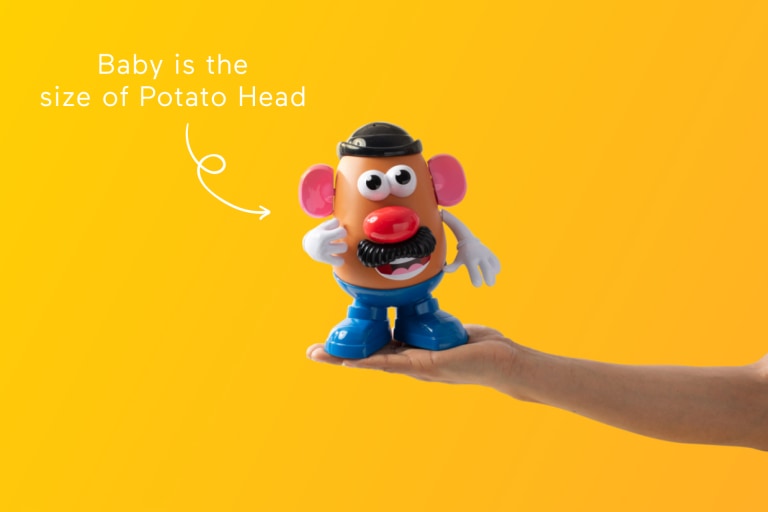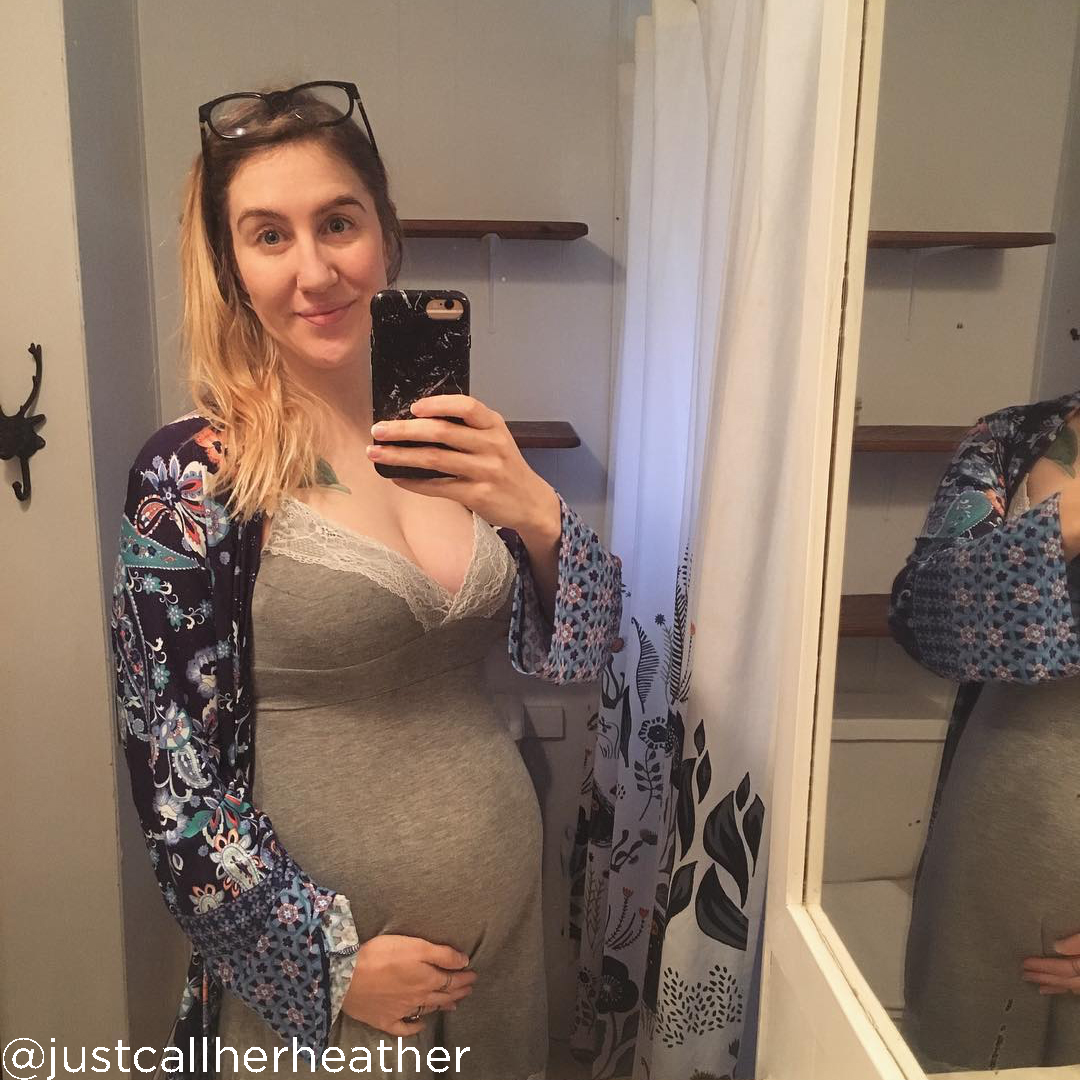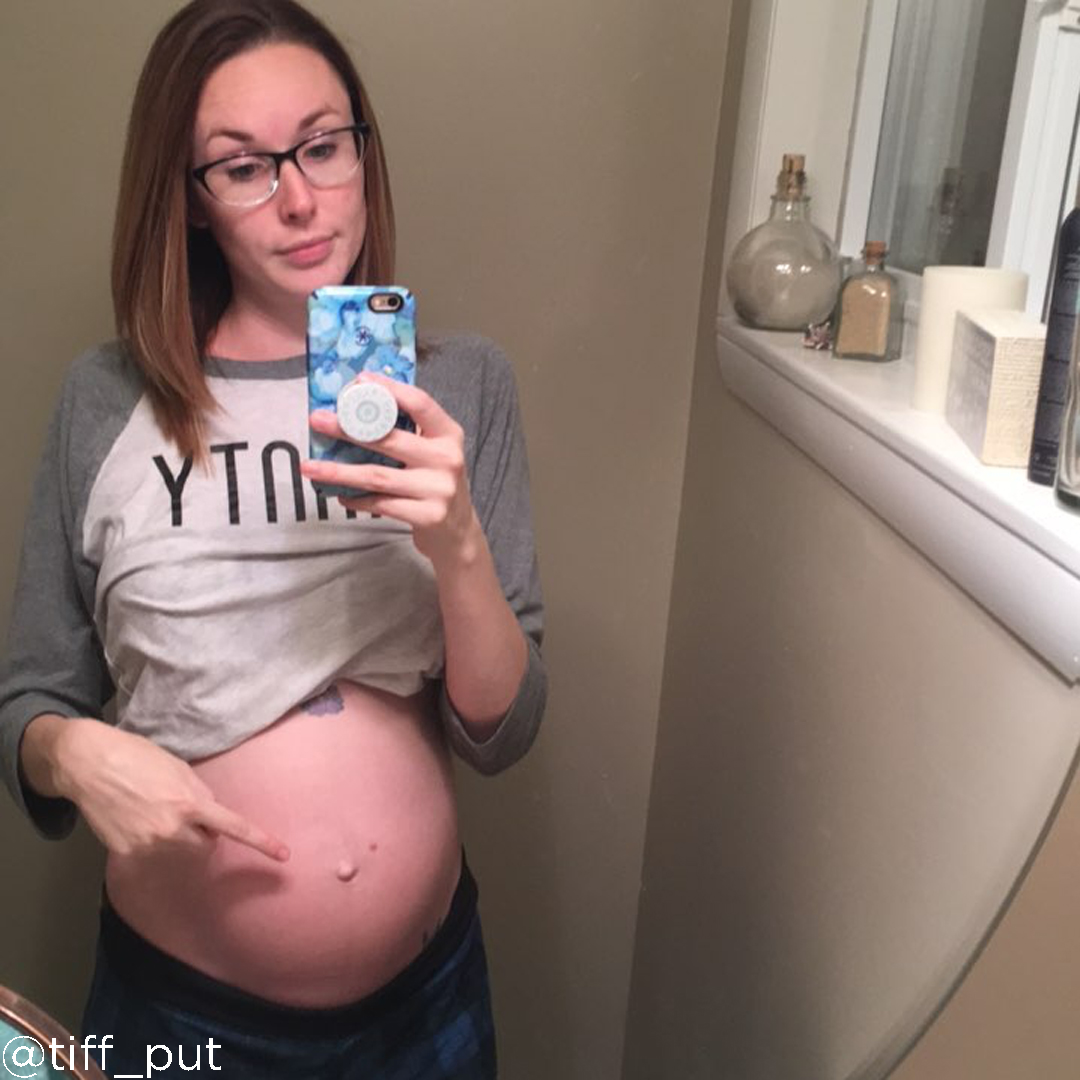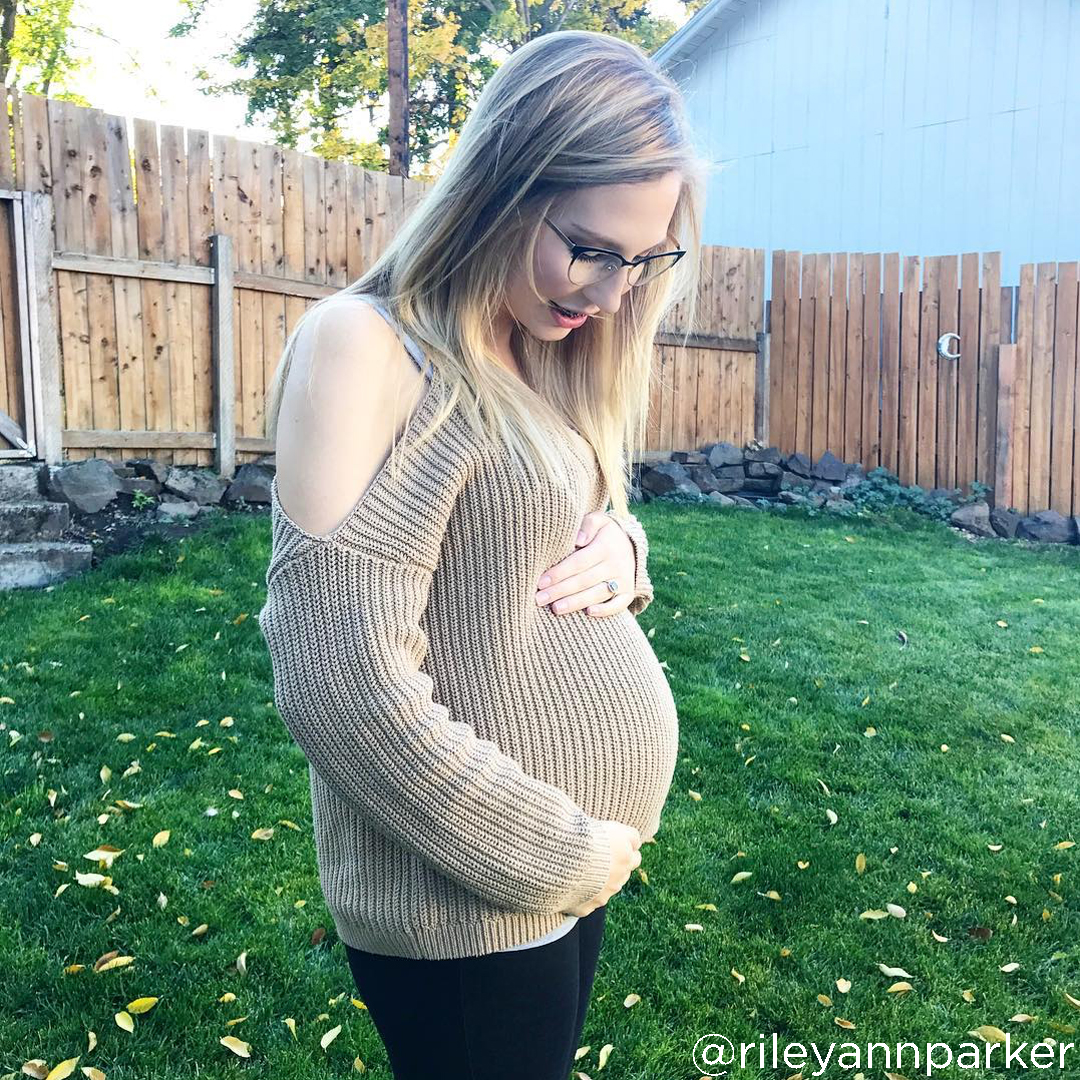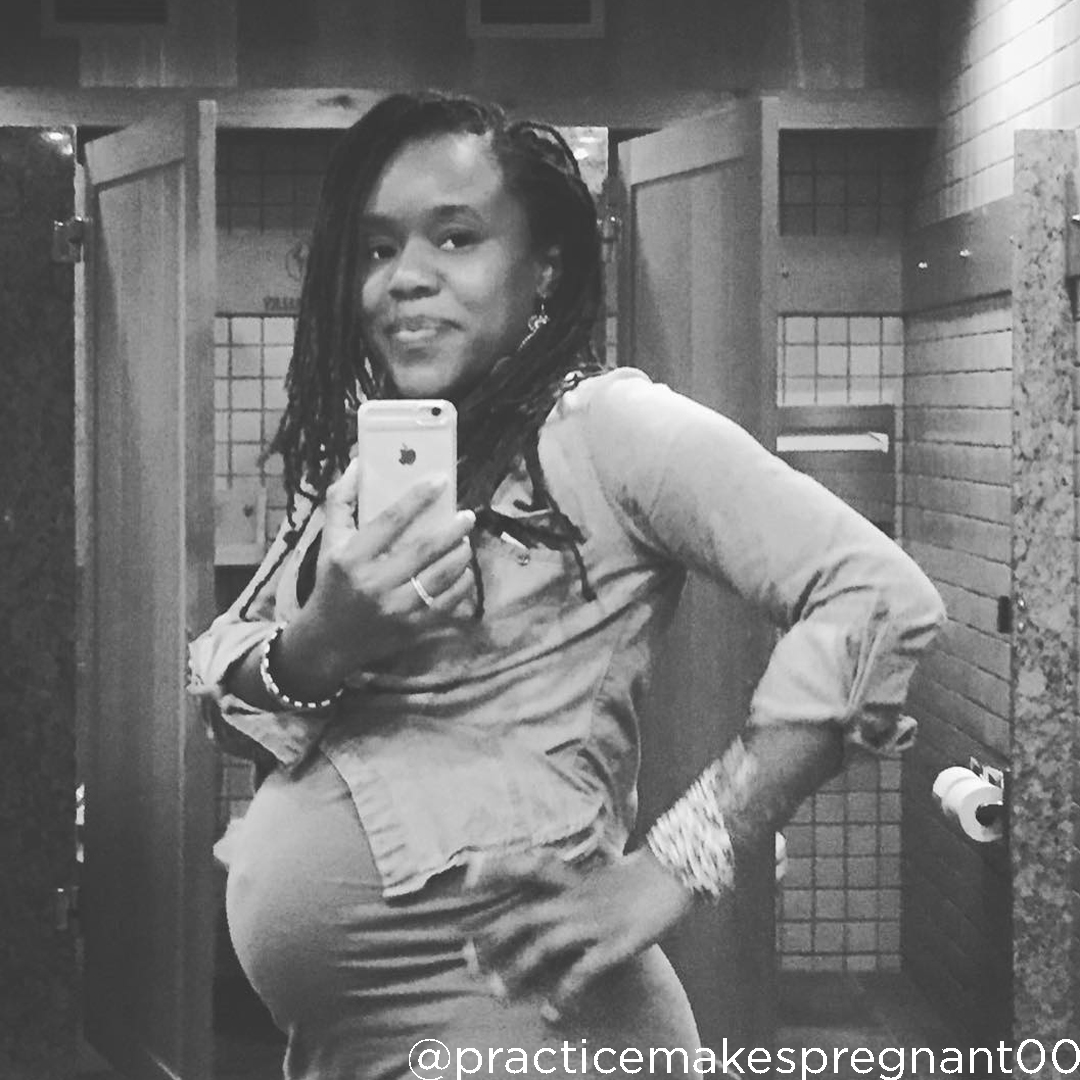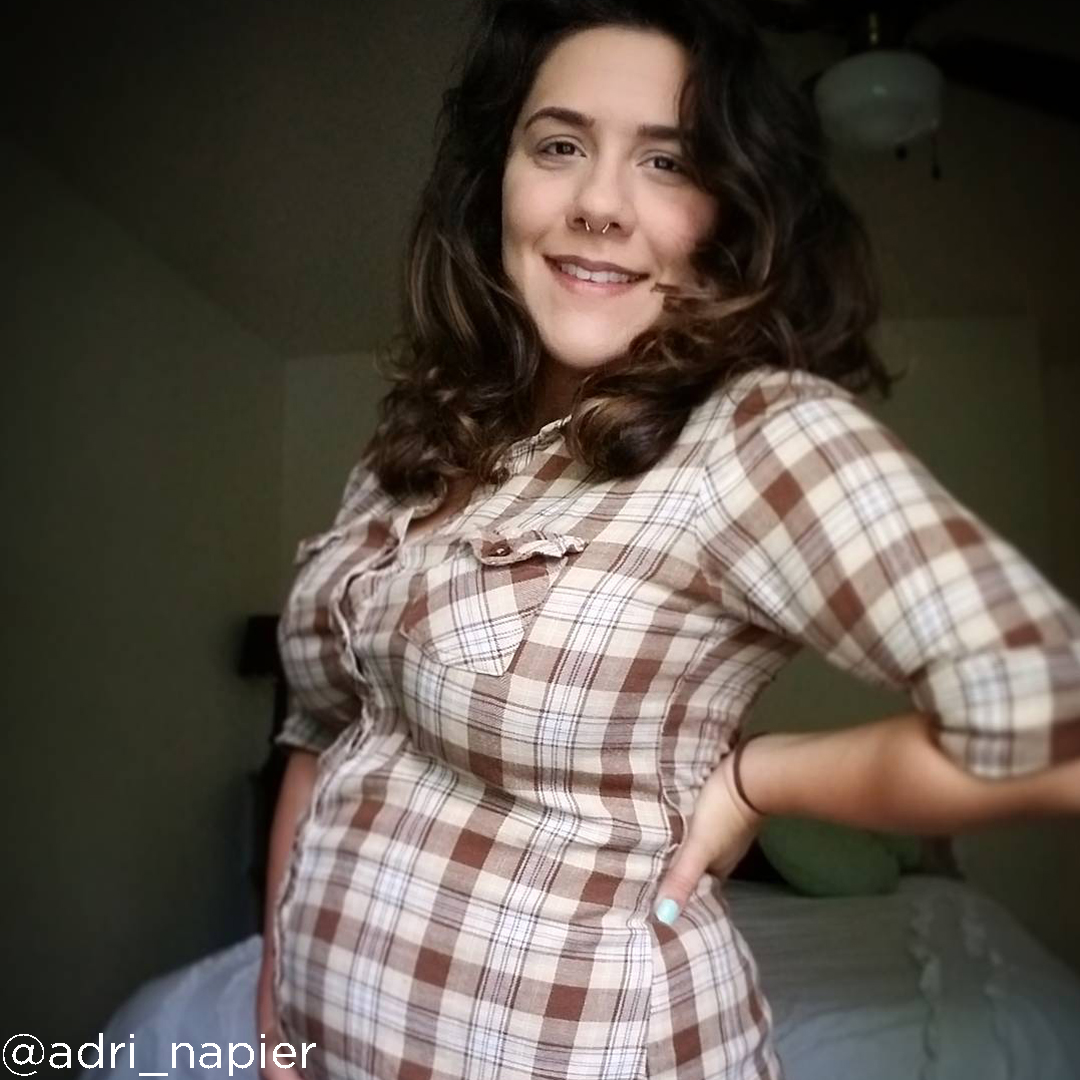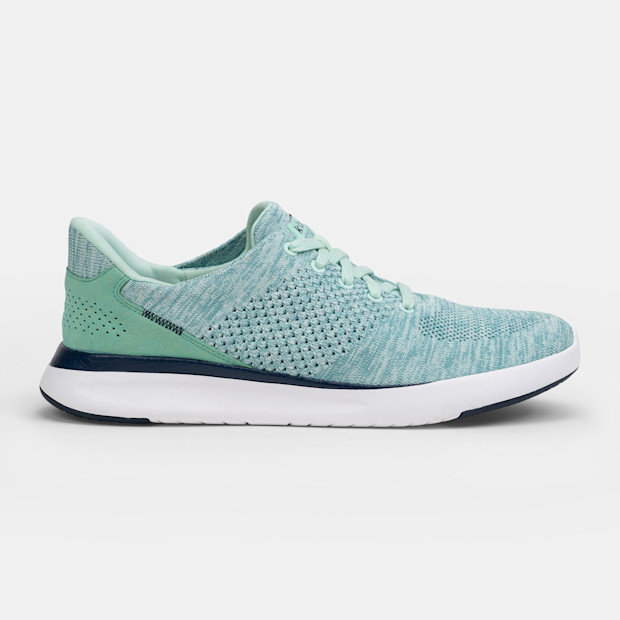24 Weeks Pregnant
At 24 weeks pregnant, you're prepping for your gestational diabetes test while baby is developing surfactant.
Six months! You made it! Baby is growing and so are you. Around this time it’s not uncommon to experience pain in your ribs, back, breasts, butt and abdomen while your hormones loosen up muscles and ligaments to make room for the (not-so) little one.
What To Expect at 24 Weeks Pregnant
How Many Months Is 24 Weeks Pregnant?
24 weeks pregnant in months is six months pregnant, which is part of the second trimester of pregnancy. If you’re unsure about your due date, you can use our due date calculator to figure it out.
Your Baby at 24 Weeks
Your baby’s working on getting cuter. Their skin is still thin and see through, but it’ll gradually start to get more opaque. Their hair and lashes are still white due to lack of pigment. As the weeks go on, their body is becoming more and more proportional, and some baby fat will soon appear, which will help with the whole see-through thing.
At 24 weeks, lots of interesting things are developing—and continuing to develop—like bone marrow and muscles. Find out more about what’s happening with your baby this week.
- Lung development: This week your baby is developing a protein that you’ve probably never heard of: surfactant. This fatty substance helps us breathe by making it easier to open the air sacs in our lungs. Your baby will keep developing more of it until about 35 weeks, according to Boston Children’s Hospital. (Preemie babies are often given extra artificial surfactant to help them breathe. Science is cool.)
- Nostrils: Their little nostrils are opening too. Time to practice breathing amniotic fluid through them.
- Inner ear: According to the National Library of Medicine (NLM), your baby is developing their vestibular system. (A mouthful, we know!) This tiny system in our inner ear helps us maintain our balance, so your baby can now tell if they’re right side up or upside down.
How Big is Your Baby at 24 Weeks?
Your baby is around 11.8 inches long and weighs 1.3 pounds this week. That’s about the size of Potato Head.
Fun Fact
Babies don’t have kneecaps when they are born. They are first made of cartilage and don’t fully harden until about three years old.
24 Weeks Pregnant Ultrasound
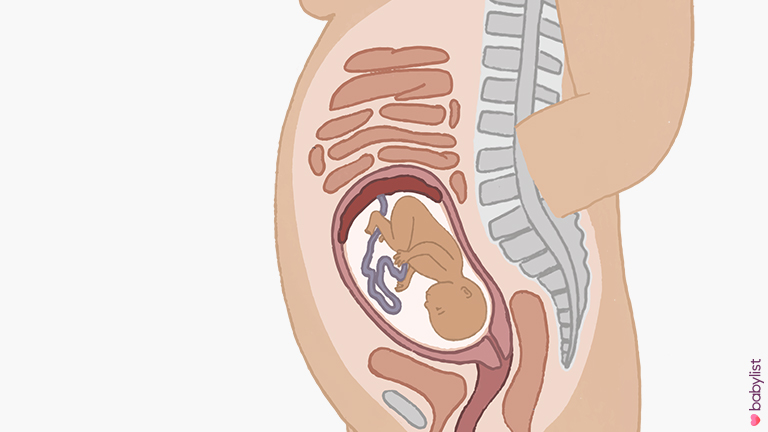
24 Weeks Baby Movement
If you’re feeling movement from baby, it may feel like fluttering, “butterflies,” jerks or hiccups. Some pregnant people say their baby’s activity feels like gas bubbles.
Your Body at 24 Weeks
You have a big test coming up soon, so you’ll want to prep for that (stock up on reading and/or podcast material now!). Also on your mind? Managing some new aches and pains.
24 Weeks Pregnant Symptoms
Red or tender gums
Pregnancy hormones make your gums more sensitive, so it’s really important to brush twice a day—and floss daily too. It’s a good time to see your dentist for a cleaning and checkup. Yep, it’s safe. In fact, it’s important not to skip that every-six-months routine.
Leg cramps
Painful muscle cramps in the legs are common in the second half of pregnancy—as if you really need new aches and pains, especially ones that mess with your sleep. Stretching, exercise, proper hydration and massage can help prevent them. When leg cramps do hit, stretching or massaging the spot can help alleviate the discomfort.
Back pain
The NLM estimates that 50% of pregnant women get back pain, so count yourself in the majority if you have an aching back. Between pregnancy hormones loosening your joints, extra weight on your body and your uterus pushing against your spine and messing with your posture, it’s no wonder that it’s hurting.
Pregnancy Symptoms Coming Up In Week 25:
Pregnancy insomnia, carpal tunnel and frequent urination are some symptoms to look forward to in week 25 of pregnancy.
24 Week Baby Bumps from Real Moms
Week 24 Glucose Screening Test
Between 24 weeks and 28 weeks pregnant, you’ll get a glucose screening test to see if you have a sign of gestational diabetes, a condition that causes high blood sugar in pregnant women. According to Dr. Malavika Prabhu, a board-certified maternal-fetal medicine specialist, this test is necessary for all pregnant people.
“Even if blood sugars outside of pregnancy are normal, every pregnant person is at risk of gestational diabetes (GDM), and up to 10% of women have GDM,” she said. Usually there aren’t noticeable symptoms, so it’s important to get tested. Treatment can prevent complications, including preterm labor and high birth weight.
“GDM happens because the placenta secretes hormones that raise maternal blood glucose, but elevated blood glucose can increase risks in pregnancy if not diagnosed and treated either with dietary changes or medications,” says Dr. Prabhu.
There are two main gestational diabetes tests: the glucose challenge test and the glucose tolerance test. You’ll definitely get one but may end up getting both. Here’s what to expect for each:
Glucose Challenge Test: This is screening test, so it tells doctors if you have signs of gestational diabetes. For this 1-hour glucose test, you’ll drink a sweet Gatorade-like drink called glucola, then wait an hour (bring reading material) and have your blood drawn. If your blood sugar level is high, it can be a sign of gestational diabetes, so you’ll likely get a follow-up test.
Glucose Tolerance Test: This one is the follow-up test that can diagnose gestational diabetes, but some women take this one from the start. For this, you’ll need to fast for eight hours before the test. You’ll have your blood taken when you arrive, and then at one hour, at two hours and then at three hours. (That’s why it’s sometimes called the three-hours glucose test.) So that means four blood draws and 11 total hours of no eating. If two or more of the blood samples from your glucose tolerance test have high levels of glucose, you’ll be diagnosed with gestational diabetes.
Here’s more about what to expect with the tests.
Commonly Asked Questions About 24 Weeks Pregnant
Only a few more weeks until the third trimester. You may have some questions about how to get stuff done and, ahem, keep you going.
When should I start making a nursery?
It’s not too soon to start nesting. Use a Pinterest board to collect ideas. If you’re not doing a nursery (hey, not everyone has the space), think of other ways you can set aside a special space for baby’s things. Alcoves with a curtain and oversized closets can work in a pinch.
How do I relieve pregnancy constipation?
Constipation is no joke. Not only is it uncomfortable, the added strain can lead to hemorrhoids. As your pregnancy progresses, chronic back-ups, so to speak, are not uncommon. Thankfully, a Squatty Potty can make a major difference when it comes to keeping your bathroom habits regular.
Is there a healthy alternative for pregnancy cravings?
There’s no shame in satisfying your sweet tooth, but shake up the usual pint of Ben & Jerry’s in favor of an alternative treat. Try a bowl of frozen grapes, dates stuffed with nut butter and dark chocolate or homemade vegan cookie dough.
💛 Congratulations 💛
You are 60% through your pregnancy!
Recommended Products for Week 24 of Pregnancy
As your pregnancy progresses, here are some items that can help make you a little more comfortable—and more hydrated!
24 Weeks Pregnant Checklist
- Design the nursery. Use Pinterest for inspiration and start choosing pieces that fit your vibe, like a crib or bassinet for baby to sleep in.
- Add baby clothes to your registry. Here’s a handy list of how many clothes to start with.
- Keep an eye on your diet. Eating healthfully every few hours keeps blood sugar steady, so you stay energized. Three small, balanced meals and three light snacks each day should do the trick.
- Make a to-do list for the grandparents-to-be about how they can help you in the weeks after your baby’s born.
Sources
- Malavika Prabhu, MD, board-certified maternal-fetal medicine (MFM) specialist and attending physician at Massachusetts General Hospital
- Vestibular activity and cognitive development in children: perspectives
- What is hyaline membrane disease?
- Pregnancy-related low back pain
This information is provided for educational and entertainment purposes only. We do not accept any responsibility for any liability, loss or risk, personal or otherwise, incurred as a consequence, directly or indirectly, from any information or advice contained here. Babylist may earn compensation from affiliate links in this content. Learn more about how we write Babylist content and the Babylist Health Advisory Board.
Babylist Staff
Editor
Babylist editors and writers are parents themselves and have years of experience writing and researching, coming from media outlets like Motherly, the SF Chronicle, the New York Times and the Daily Beast, and the fields of early childhood education and publishing. We research and test hundreds of products, survey real Babylist parents and consult reviews in order to recommend the best products and gear for your growing family.

